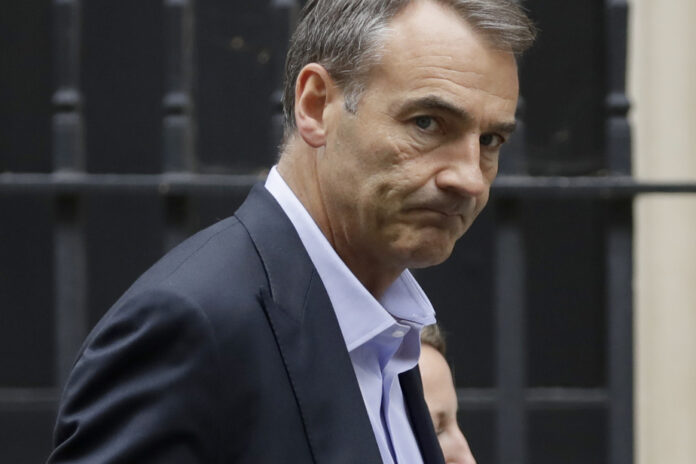(London) Thunderbolt at the head of the British oil giant BP: the group announced on Tuesday the resignation “with immediate effect” of its managing director Bernard Looney, accused of having hidden “personal relationships” with several colleagues.
“BP announces that Bernard Looney has informed the group that he is resigning from his position as CEO with immediate effect” after admitting “not having been completely transparent,” the group said in a statement.
Current financial director Murray Auchincloss will take over in the interim.
Bernard Looney can be credited with leading one of Britain’s largest groups through the pandemic, which caused oil prices and economic activity to collapse, and then the Russian invasion. of Ukraine, which has conversely caused hydrocarbon prices to soar and inflated the accounts of oil companies.
In its press release, the hydrocarbon giant indicates that it became aware in May 2022 of “allegations […] relating to the behavior of Mr. Looney concerning personal relationships with colleagues within the group”.
An internal investigation was launched, during which the 53-year-old chief executive, who took over as CEO in 2020, admitted to “a small number of long-standing relationships with colleagues before becoming chief executive”.
“No violation of the group’s code of conduct was noted,” BP said.
“But new allegations of a similar nature” have emerged “recently” and “today (Tuesday) Mr. Looney informed the group that he acknowledges that he has not been fully transparent in his previous statements.”
“The group has strong values and the board expects everyone within it to behave in accordance with these values. “All leaders in particular are expected to act as role models and exercise good judgment in order to gain the trust of others,” BP further emphasizes.
Of Irish origin, Bernard Looney joined BP as an engineer in 1991 and spent his entire career there, occupying various operational and management positions in several countries, including the United States, Vietnam and the United Kingdom.
He started his mandate by focusing on the energy transition, promising to lead the company towards carbon neutrality, before the group put the brakes on its environmental ambitions in February, hoping to boost its share price and attract investors.
BP then indicated that it planned to increase its profits by 2030 by investing more in both renewable energy and hydrocarbons.
Like the other majors in the sector, BP benefited a year ago from the surge in gas and oil prices, in a market disrupted by the post-pandemic economic recovery and the Russian invasion of Ukraine.
A year later, prices have fallen, although they remain at high levels.
BP saw its net profit divided by five year-on-year in the second quarter, to $1.8 billion.
Mr Looney’s departure comes on the heels of a wave of resignations or ousters in British business over sexual misconduct, notably at Britain’s largest employers’ body, the CBI, but also at the Tesco distributor, among others.
Mr. Looney took the helm of BP almost ten years after the worst disaster in its history, the oil spill caused by the explosion of the Deepwater Horizon platform that the group was operating to drill in very deep waters in the Gulf of Mexico.
He had been part of the crisis unit urgently sent to the site to try to stop the oil bleeding.
Trying to embody a certain modernity, he regularly uploaded his Instagram account to communicate on BP policies or his meetings with the teams of the oil “major” around the world.















